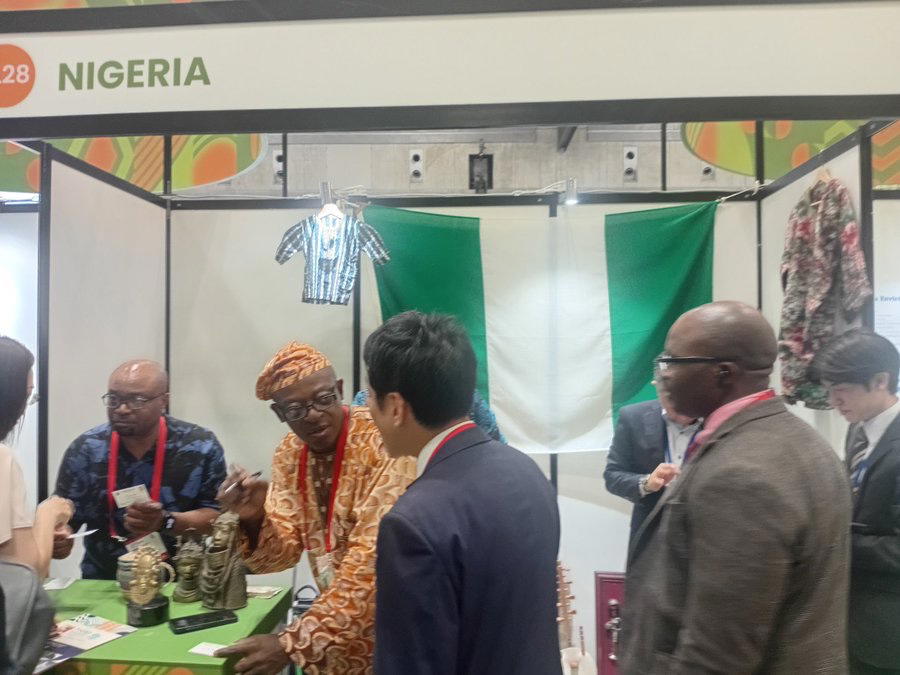Nigeria reaffirms commitment to strategic partnerships at TICAD 9

Nigeria has reaffirmed its commitment to deepening strategic alliances with Japan and other international partners during the Ninth Tokyo International Conference on African Development (TICAD 9) in Yokohama, Japan. Mr Bolaji Tunji, Special Adviser on Strategic Communications and Media Relations to the Minister of Power, disclosed this in a statement issued on Friday in Abuja.
Tunji said the Nigerian delegation, led by President Bola Tinubu, participated in high-level engagements that prioritised power, infrastructure, and industrial transformation as critical drivers of sustainable development.
According to him, Tinubu, while addressing the summit, emphasised that Nigeria’s participation at TICAD 9 was not about trade exhibitions but about forging strategic, outcome-driven partnerships that would deliver tangible benefits to the Nigerian people.
He noted that the President stressed Nigeria’s deliberate shift from planning to implementation, from agreements to delivery, and from promises to measurable results.
Tunji also stated that the Minister of Power, Chief Adebayo Adelabu, who was part of the national delegation, held strategic engagements with Japanese stakeholders, including Toshiba, Hitachi, Japan Transmission & Distribution Corporation, and the Energy Exchange Corporation.
He explained that the discussions focused on strengthening transmission infrastructure, improving operational efficiency, and developing strategies to reduce system losses in Nigeria’s power sector.
“These engagements were built on the recent Federal Executive Council’s approval for counterpart funding of ₦19,083,192,805.30 to catalyse a loan funding of 238 million dollars from the Japan International Cooperation Agency (JICA).
”This loan funding will support the expansion of the national grid with the addition of 102.95 Kilometers (KM) of new 330 kilovolts (kV) double circuit (DC) line, 104.59km of new 132kV double circuit (DC) line,
”Four 330/132/33kV substations, two 132/33kv substations, two 330kV line bays extension, two 132kV line bays extension, and one 132kV Substation,”he said.
The minister also announced that Nigeria was advancing a 190 million dollar renewable energy loan facility supported by the Japan International Cooperation Agency (JICA), designed to scale distributed renewable energy solutions across underserved communities.
Adelabu stated that the loan, built on the recently launched $ 750 million World Bank Distributed Access through Renewable Energy Scale-up (DARES) programme under the Mission 300 Compact, aimed to bring clean and reliable electricity to more than 17 million Nigerians.
”In parallel, three substations funded by JICA through a 32 million dollar grant are set for commissioning in Apo (FCT), Keffi (Nasarawa State), and Apapa (Lagos State).
”These projects will directly strengthen supply reliability to households, businesses, and industrial clusters, including critical facilities such as the Lagos Port and surrounding industrial areas.”
Adelabu stated that, in addition, through its partnership with JICA, the National Power Training Institute of Nigeria has inaugurated state-of-the-art training equipment in Abuja to enhance the skills of distribution engineers and address network losses.
He stated that this facility was designed to deepen local expertise and promote long-term sustainability in sector operations through capacity development, which has remained a cornerstone of Nigeria’s power sector strategy.
The minister also spoke during a panel session titled “HICKARE Africa: Harnessing Innovation, Co-creation, and Knowledge for Accessible and Resilient Energy for Africa,”
Adelabu highlighted Nigeria’s current energy realities at the session, noting that only 55–60 percent of the country’s population of over 200 million had access to electricity, much of which remained unreliable.
He explained that the Federal Government was addressing this gap by expanding grid access in urban areas while simultaneously accelerating off-grid solutions, including solar mini-grids and standalone systems, for rural and peri-urban communities.
The minister reaffirmed the government’s commitment to overcoming these obstacles, despite persistent challenges such as limited access to affordable capital, cost barriers for rural households, and underutilization of productive-use equipment.
According to him, this will be done through supportive policies, strategic private-sector partnerships, and local manufacturing of renewable energy components.
Adelabu, however, expressed deep appreciation to JICA and the Government of Japan for their long-standing support to Nigeria’s power sector,
.
He recognised JICA as a reliable partner in advancing the country’s energy transition and expanding access to reliable, affordable, and sustainable electricity.
Adelabu also highlighted JICA’s contributions across infrastructure development, technical studies, training, and renewable energy financing.
He, however, expressed optimism for further strengthened collaboration and partnership between the Governments of Japan and the Federal Government.
The post Nigeria reaffirms commitment to strategic partnerships at TICAD 9 appeared first on Vanguard News.







